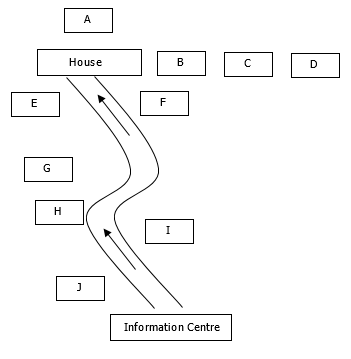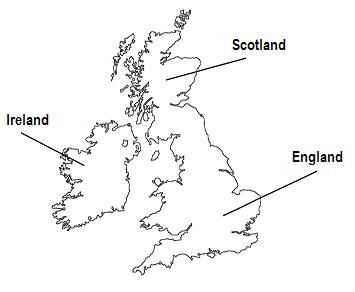Listening Audio: [Click the play button to start the audio]
SECTION 1
[Section 1: Questions 1-10]
Question 1-10.
Complete the form below. Write ONE WORD AND/OR A NUMBER for each answer.
OPENING A BANK ACCOUNT
Example: Application for a …
Answer: Current bank account.
Type of current account: The 1 ‘……………………..’ account
Full name of applicant: Pieter Henes
Date of birth: 2 ……………………
Joint account holder(s): No
Current address: 3 …………………….. Exeter
Time at current address: 4 …………………..
Previous address: Rielsdorf 2, Utrecht, Holland.
Telephone: work 5 …………………..
Occupation: 6 …………………….
Identity (security): Name of his 7…………………….. Siti.
Opening sum: 8 € ……………………. to be transferred from Fransen Bank, Utrecht.
Statements: Every 9 ……………………
Requests: Supply information about the bank’s 10 ……………………. service.
SECTION 2
[Section 2: Questions 11-20]
Questions 11-13
Choose the correct letter, A, B or C.
THE HISTORY OF ROSEWOOD HOUSE
11. When the writer Sebastian George first saw Rosewood House, he
A. thought he might rent it.
B. felt it was too expensive for him.
C. was unsure whether to buy it.
12. Before buying the house, George had
A. experienced severe family problems.
B. struggled to become a successful author.
C. suffered a serious illness.
13. According to the speaker, George viewed Rosewood House as
A. a rich source of material for his books.
B. a way to escape from his work.
C. a typical building of the region.
Questions 14-17
Label the map below. Write the correct letter, A-J next to questions 14-17.
ROSEWOOD HOUSE AND GARDENS

14. Pear Alley ……………….….
15. Mulberry Garden ……….…………
16. Shop ………….………
17. Tea Room ……….…………
Questions 18-20
Complete the sentences below. Write ONE WORD ONLY for each answer.
RIVER WALK
18. You can walk through the ……………….. that goes along the river bank.
19. You can go over the …………………. and then into a wooded area.
20. On your way back, you could also go up lo the …………………….
SECTION 3
[Section 3 – Questions 21-30]
Questions 21-24
Complete the sentences below. Write NO MORE THAN THREE WORDS AND/ OR A NUMBER for each answer.
MARKETING ASSIGNMENT
21. For their assignment, the students must investigate one part of the ………………..
22. The method the students must use to collect data is ……………………….
23. In total, the students must interview ………………………. people.
24. Jack thinks the music preferences of …………………….. listeners are similar.
Questions 25-30
Complete the notes below. Write NO MORE THAN TWO WORDS for each answer.
Marketing Survey: Music Preferences
Age group of interviewee
• 25 or under
• 45 or over
Music preferences
• Pop
• 25 …………………….
• Folk
• Easy listening
• 26 ……………………..
Medium for listening to music
• Radio
• CD
• TV
• 27 ………………………
Source of music
• Music shops
• 28 ………………………
• Internet
Places for listening to music
• Disco
• Pub
• 29 ………………….
• Concert hall
• 30 …………………..
SECTION 4
[Section 4: Questions 31-40]
Questions 31-33
Choose the correct letter, A, B or C.
IRELAND IN THE NEOLITHIC PERIOD

31. According to the speaker, it is not clear
A when the farming economy was introduced to Ireland.
B why people began to farm in Ireland.
C where the early Irish farmers came from.
32. What point does the speaker make about breeding animals in Neolithic Ireland?
A Their numbers must have been above a certain level.
B They were under threat from wild animals.
C Some species died out during this period.
33. What does the speaker say about the transportation of animals?
A Livestock would have limited the distance the farmers could sail.
B Neolithic boats were too primitive to have been used.
C Probably only a few breeding animals were imported.
34. What is the main evidence for cereal crops in Neolithic Ireland?
A the remains of burnt grain in pots
B the marks left on pots by grains
C the patterns painted on the surface of pots.
Questions 35-40
Complete the sentences below. Write NO MORE THAN TWO WORDS for each answer.
STONE TOOLS
35. Ploughs could either have been pulled by ……………………… or by cattle. 36. The farmers needed homes which were permanent dwellings. In the final stages of axe-making ……………………….. and ………………………. were necessary for grinding and polishing.
37. Irish axes were exported from Ireland to …………………….. and England.
POTTERY MAKING
The colonisers used clay to make pots.
38. The ……………………. of the pots was often polished to make them watertight.
39. Clay from ……………………. areas was generally used.
40. Decoration was only put around the ……………………. of the earliest pots.
